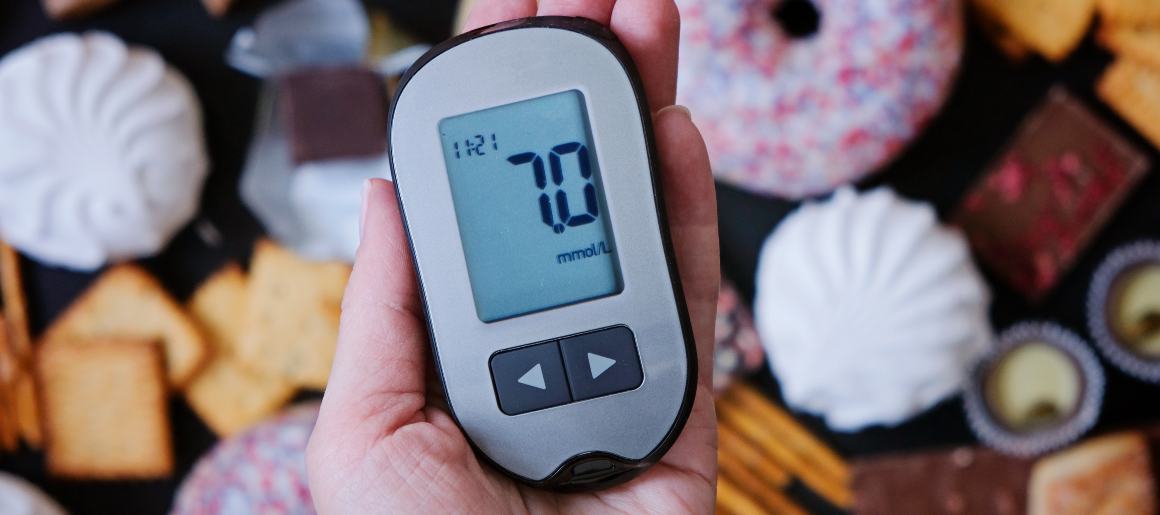Is CoQ10 good for diabetes?
Published:
Diabetes is a chronic disease affecting millions of people worldwide. In addition to medications and lifestyle changes, some researchers have explored whether supplements like coenzyme Q10 (CoQ10) can benefit diabetes management. This article provides a comprehensive, evidence-based overview analyzing whether CoQ10 is good for diabetes control and reduction of complications.
Contents:

What is CoQ10 and Why is it Relevant to Diabetes?
CoQ10 is a naturally occurring compound that plays a vital role in cellular energy production and also has antioxidant properties. Here’s some background on what it is and why it’s linked to diabetes:
- CoQ10 acts as an essential cofactor for generating ATP energy in mitochondria, the “powerhouses” of cells.
- It also functions as a potent antioxidant, helping protect against oxidative stress which is elevated in diabetes [1].
- CoQ10 levels have been shown to be lower in some people with diabetes compared to controls [2].
- Statins and some other cholesterol medications deplete CoQ10 status. Many diabetics take statins, making supplementation potentially more important [1].
- Ageing also reduces endogenous CoQ10 synthesis. CoQ10 declines in tissues as we get older [3].
- Supplements may help restore optimal CoQ10 status in those with deficiency or suboptimal levels.
Evidence for CoQ10 Benefits in Diabetes
While research is still ongoing, some key findings suggest CoQ10 supplementation may have usefulness in diabetes:
Improving Long-Term Blood Sugar Control
- Multiple clinical trials show CoQ10 can reduce hemoglobin A1c (HbA1c), a marker of long-term glycemic control [2][4].
- A meta-analysis of 10 RCTs found CoQ10 significantly lowered HbA1c compared to placebo [4].
- Doses showing efficacy ranged from 100-200 mg/day, taken for 10-24 weeks [4].
Lowering Fasting Blood Glucose Levels
- Several studies demonstrate CoQ10 supplementation reduces fasting blood glucose levels in diabetics [2][5].
- A meta-analysis of 15 clinical trials found a significant decrease in fasting glucose with CoQ10 vs placebo [5].
- Doses in the trials ranged from 60-300 mg/day for durations between 4-24 weeks [5].
Enhancing Insulin Secretion
- There is some evidence that CoQ10 can preserve or improve pancreatic beta cell function and insulin secretion [3][6].
- One study showed CoQ10 restored insulin secretion in diabetic rats by protecting mitochondrial function in beta cells [6].
- More research is still needed to confirm effects on insulin levels in humans.
Improving Insulin Sensitivity
- Some studies indicate CoQ10 increases insulin sensitivity and glucose uptake in peripheral tissues [3][7].
- A double-blind RCT found 300 mg/day of CoQ10 for 12 weeks significantly improved insulin resistance compared to placebo [7].
- Enhanced mitochondrial ATP production and reduced inflammation may contribute to improving insulin sensitivity.
Mitigating Diabetes Complications
- By reducing oxidative stress and inflammation, CoQ10 may mitigate microvascular complications like neuropathy, nephropathy and retinopathy [3][8].
- It helps maintain the function of endothelial cells lining blood vessels [3]. Dysfunction of endothelial cells contributes to vascular disease.
- CoQ10 may also benefit fatty liver disease, a common comorbidity in diabetics [9].
Safety Profile and Potential Side Effects
When used appropriately, CoQ10 supplementation appears to be well-tolerated with a low risk of adverse effects:
- Clinical trials have used daily doses from 50-200 mg safely for up to 6 months [4].
- Gastrointestinal side effects like nausea or diarrhea are occasionally reported but typically mild [5].
- Headaches, dizziness, and fatigue are possible but not common [5].
- No major adverse events or risks have been identified even with long-term use [3].
- Discuss use with your physician if taking any medications or have any medical conditions.
- Anyone experiencing concerning symptoms should stop use and notify their healthcare provider.
Supplementation Considerations and Dosage Guidelines
Some key points regarding CoQ10 supplementation for diabetics:
- Ubiquinol form may offer better absorption than ubiquinone [10].
- Take supplements with food containing fat or oils to enhance uptake [10].
- Most studies showing benefits use dosages between 100-200 mg/day [4][5].
- Consult medical provider before exceeding 200 mg per day.
- Allow at least 4-12 weeks for benefits, with some trials going up to 6 months [3].
- Purchase quality brands tested by independent labs [10].
- Store supplements properly away from heat and humidity [10].
- Tell your doctor about any supplements you take in addition to prescribed medications.
Is CoQ10 good for diabetes? Conclusion
Despite some promising findings, more research is still needed to conclusively determine the efficacy and long-term safety of CoQ10 supplementation for diabetes management. Based on current evidence, CoQ10 may provide particular benefit for:
- Older diabetics with declining endogenous CoQ10 synthesis
- Those on statins or medications that deplete CoQ10 status
- Patients with cardiovascular complications or fatty liver disease
- Individuals with mitochondrial dysfunction or oxidative stress biomarkers
- Early-stage diabetes when insulin resistance is developing
Used under medical guidance and supervision, CoQ10 is likely a safe, low-risk adjunctive therapy for some diabetics, especially when combined with standard treatments. However, patients should avoid discontinuing or altering prescribed diabetes medications or lifestyle changes without consulting their physician.
Sources
- [1] https://www.ncbi.nlm.nih.gov/pmc/articles/PMC6118413/
- [2] https://www.ncbi.nlm.nih.gov/pmc/articles/PMC6148305/
- [3] https://www.ncbi.nlm.nih.gov/pmc/articles/PMC5012488/
- [4] https://www.thelancet.com/journals/eclinm/article/PIIS2589-5370(22)00332-7/fulltext
- [5] https://www.mdpi.com/2072-6643/10/8/1029
- [6] https://www.ncbi.nlm.nih.gov/pmc/articles/PMC4155730/
- [7] https://pubmed.ncbi.nlm.nih.gov/28381349/
- [8] https://www.liebertpub.com/doi/10.1089/ars.2013.5335
- [9] https://www.ncbi.nlm.nih.gov/pmc/articles/PMC4237073/
- [10] https://examine.com/supplements/coenzyme-q10/















